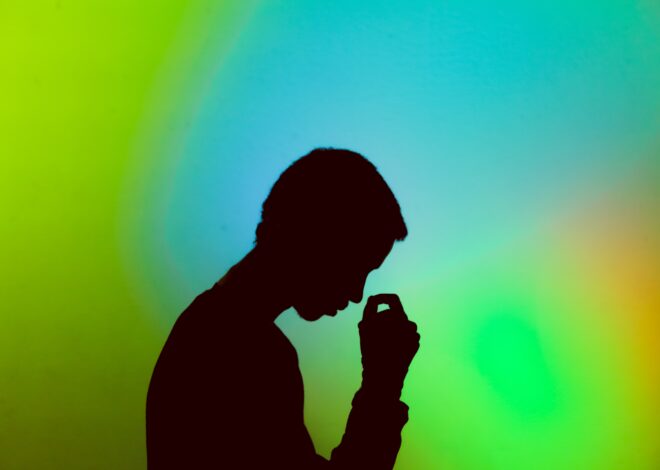A Gay Activist is Conflicted about the Marriage Equality Campaign
What if you got a chance to chat over coffee with a deeply experienced, witty, and smart gay leader about the movement for marriage equality?

Reflections on the struggle for marriage equality and where it stands today.
What if you got a chance to chat over coffee with a deeply experienced, witty, and smart gay leader about the movement for marriage equality? He might say something you haven’t seen elsewhere about the campaign. Listen in on a conversation with Matt Foreman (left, with Francisco De Leon to right):
Matt, isn’t the Freedom to Marry movement a huge, unexpected, and unqualified success?
Well, yes. But frankly, I’m also a little conflicted about the issue. Fifteen years ago, when activists started pushing marriage equality in New York and I was lobbying for pro-gay legislation, I said “Folks, stay the hell out of Albany — we can’t even get a hate crimes bill passed because it would include the dreaded words ‘sexual orientation’ and you want us to put marriage on the table? No way, no how!”
I was convinced that marriage would have stalled and derailed not only the hate crimes bill but a basic nondiscrimination bill that, at that point, had already languished for more than two decades.
Was I right? Well, maybe if we’d set marriage as the explicit goal, the incremental steps wouldn’t have seemed so huge. All I know is that we did get a gay-inclusive hate crimes law in 2000 and the civil rights law in 2002, and that was when Republicans held both the State Senate and the governor’s mansion.
Back then, I was also one of those people who said: just give me the same rights and benefits as marriage and I don’t care if you call it broccoli.
In other words, you would have been satisfied with civil unions?
Yes, but I was wrong. Today, in my job at the Evelyn and Walter Haas, Jr. Fund, I spend nearly all my time and energy on marriage equality — including insisting on using the word “marriage” and everything that comes with it — from rights to commitment to societal status. And I’m thrilled to do the work. But I’m still somewhat conflicted.
But why? Are there downsides to the marriage equality movement?
On the one hand, marriage has brought new resources and incredible energy into the movement, unlike anything since the depths of the AIDS plague in the late ’80s and early ’90s. It has put gay people and our lives and our families in the public eye and debate in ways unimaginable even 10 years ago. All of this has changed public opinion in ways nothing else has or could. I am convinced marriage equality is the “tide that has lifted all boats” for our community’s issues.
On the other hand, the movement was completely unprepared for the political backlash that followed a few pro-marriage court victories won by legal groups. The backlash has resulted in 31 states that have amended their constitutions to enshrine anti-gay bigotry — an unprecedented use of the ballot box to deprive a minority of a right it never even had.
And even beyond this legislative catastrophe, the campaigns surrounding each one of them have caused untold personal hurt and humiliation. Right wing groups have enriched themselves beyond belief on money raised playing the “gay marriage” scare card. They’ve gotten money that has increased their capacity to stop, stall, and roll back advances in other progressive areas.
So on one hand it’s been a great victory and on the other hand there’s been a huge backlash. Any other downsides?
Well, on yet another positive hand: married gay couples in the jurisdictions where we now have the freedom to marry have significant protections under state law and, if we are able to dismantle the so-called Defense of Marriage Act through the courts, thousands – including me – will have access to life-changing things like Social Security survivor benefits and tax breaks.
Moreover, thousand of couples — me included — have been able to experience the indescribable joy, happiness, and emotion that saying the simple words “I do” brings. It’s deep.
And on yet another negative hand (yes I know that makes four hands), I still believe in a gay movement that is grounded in liberation from stifling societal norms and celebrates new ways of building families.
Instead, we’ve embraced an institution that has less and less to do with the way most — gay or straight — Americans actually experience family, and we’ve fallen into line with the harmful and unjust practice of restricting and rationing critical benefits and protections based on marital status. I worry that there will be pressure for everyone to marry.
We’ve put forward sanitized, white picket fence “good gays” for public consumption. I think most of our movement’s now-departed founders would be horrified.
A lot of people are saying equality for gay and lesbian people is inevitable – do you agree – and then what?
This drives me crazy. People watch Modern Family or hear that Anderson Cooper has come out or you name any one of these popular culture events and they think we’ve won, the struggle is over.
That’s simply not reality. On paper it’s still legal in 29 (yes, 29) states to fire someone simply for being gay (and in 34 if you’re transgender). And the movement hasn’t been able to pass a statewide gay rights law in three years, and it’s hard to find any near-term prospects for doing so.
But even in places where there has been real progress on the books, what does that actually mean in gay people’s lives? How about here in San Francisco — often perceived to be the center of the gay universe? You think it’s easy or safe to be a gay student in a public high school here? Think again. It’s not. At all.
Isn’t it pretty easy now for adults to come out to their friends and family?
No. This divide between perception and reality has become painfully clear through a project the Haas, Jr. Fund is supporting to encourage more gay people to talk to the people in their lives — family, friends, neighbors, and co-workers — about equality issues. Why? Because we know that these kinds of personal conversations dramatically increase support for gay rights.
What we’ve found is that even the most committed activists have an incredibly difficult time taking even the first step toward a conversation about marriage, or anti-bullying policies, you name it — anything about the reality of our lives. We’re terrified of personal rejection, of finding out that someone you thought you knew really well actually isn’t so cool about you being gay — or, put another way, bursting the fragile bubble of perceived support and acceptance we gays are experts at constructing.
I sure don’t mean to minimize the extraordinary, unparalleled progress our movement has made in the last 40 years — mainly through the work of struggling, tiny, under-resourced groups — not the black tie crowd. But, we still have a really, really long way to go.
What is it like having a career as a gay activist? That probably isn’t what you expected as a child.
I feel like the luckiest man alive — for more than 20 years I’ve had the privilege of working for something I truly believe in and actually making a living at it. And, I’ve been an executive director of three different gay organizations and never got fired!
About the Author
Matt Foreman is director of Gay and Immigrant Rights Programs at the Evelyn and Walter Haas, Jr. Fund in San Francisco. Previously, he served as executive director of the National Gay and Lesbian Task Force, the Empire State Pride Agenda, and the New York City Gay & Lesbian Anti-Violence Project. He is married to Francisco De Leon, and has bought an awful lot of wedding presents in the last few years.
Articles on Blue Avocado do not provide legal representation or legal advice and should not be used as a substitute for advice or legal counsel. Blue Avocado provides space for the nonprofit sector to express new ideas. Views represented in Blue Avocado do not necessarily express the opinion of the publication or its publisher.












From the outside, the gay movement seems 100% united. Probably all movements look like that from the outside. I appreciate getting a peek at the inner dynamics of a movement.
I admire and applaud Matt's courage and unusual candor in letting us understand more about the nuances and complexities of the marriage equality movement. It's only by hearing these kinds of complicated reflections that we can learn. Thank you, Matt.
Great perspective, thank you Matt. I am increasingly thinking about the well being of people as a critical metric and criteria for the work we do; well being of both the LGBT community as a whole and of individuals. How do we advance policy work and do movement and community building work in a way that advances people’s well being? I think keeping that focus might help us avoid the pitfall of declaring victory too soon.
-Cynthia
Here is a recent radio commentary I did for Vermont Public Radio on Marriage Equality http://www.vpr.net/episode/54310/killacky-marriage-equality/
What a relief to read this article! As one of the 20,000 married same-sex couples in California, my partner and I are so proud to be part of this profound act of civil disobedience. But just like Matt, I often feel schizophrenic because I fear that this largely symbolic victory (thanks to the strength of domestic partnership law in California) has triggered losses for couples with far fewer protections in other states. Living a social change, when your life and the lives of your children are on the line, is a not for the faint of heart. With every ballot initiative that takes away protections and rights, particularly over children, my heart sinks and the well-meaning exhortations from my straight friends that it's just a matter of time does not help. But I try to take the long view and think of all the other struggles the proceed this one. One final note–I had a similar take on marriage a decade ago, only I said I don't care if you call it a bagel, rather than broccoli. I guess it's a good thing that we now have a much more fitting word to describe the commitments we make to our partners.
Great comment, Kathy! And maybe broccoli bagels can become the food of choice for Marriage Equality meetings. Jan
As an Executive Director of an LGBTQ social and economic justice organization in Washington State called Allyship, I've seen the reprecutions of a one issue movement. The money and resources to fight for economic justice for LGBTQ individuals in an economic recession, to fight for access to affordable health care, to fight to end LGBTQ youth homelessness, to fight for racial justice and immigrant rights in the LGBTQ community has been swallowed up by the Marriage Equality movement. Our community has benefitted from the publicity from the Marriage Equality movement, but we'll never know if we could have gained that publicity through a social justice paradigm that actually puts the most vulnerable in our community at the center of our movement. In Washington State, LGBTQ organizations that address the issues of the most vulnerable in our community are sadly strugggling for resources at a time when the United States is still in an economic recession and LGBTQ low-income and working class individuals are invisible and are not getting their needs met. Allyship and other organizations will continue to fight from a racial, gender and economic justice perspective in the LGBTQ community and welcome both LGBTQ and the broader social justice communities as allies to address the needs of our diverse communities. Sincerely, Debbie Carlsen
Debbie – I certainly hear you and I think Rea Carey did an excellent job at last year’s Creating Change in talking about the dangers of being – or being perceived to be – a one issue movement. It’s beyond frustrating that some people think that when we have marriage equality the struggle will be done. At the same time, I’ve seen marriage move people in ways nothing else has, other than facing death during the peak of the AIDS crisis. A huge part of this is societal and the way marriage is so much an intrinsic part of popular and religious culture. I also think we haven’t done a good job of telling the stories of the disadvantaged to those in our community who are better off and engaging their hearts. Thanks for commenting.
I agree – I think it's easier for the gay movement to appear united because one of the central tenets – equal rights under the law – is so uncomplicated. Peter Hogan, Cambodia
Very interesting post with many points of view that aren't traditionally mentioned.